ALL THE WAY
ALL THE WAY
MY LIFE ON ICE
JORDIN TOOTOO
with Stephen Brunt

FOR JENNIFER
FOR MY PARENTS
FOR CORINNE
FOR TERENCE
T he sun has been up for a long time, though the truth is it barely sets in high summer. The others are still sound asleep in a ten footbyten foot cabin, a bare-bones wooden box on the shores of a northern lake in the middle of a landscape I am struggling to absorb. The sky and the water are deep blue. The brownish tundra unfolds endlessly in all directions, broken only by huge boulders. It is silent, absolutely silent, save for the whistling wind, which never seems to die completely, a blessing when it keeps the clouds of mosquitoes at bay, and for the occasional squawks of the huge storks that spend their summers here. Beyond that, there are no real signs of life, except for the Great Horned Owl we saw perched on a rock during the long, rough ride in on quads. Somewhere not so far away a grizzly bear has been spotted heading in our general direction, and so even on a short stroll a rifle is necessary, though the truth is, with me packing, the bear has absolutely nothing to fear.
We are heremy son Nathaniel and me; Jordin Tootoo; his father, Barney; and his young nephew Terence, named after a brother and son lostto fish for giant lake trout. The water is so clear you can watch the fish chase the lure back to the boat, though its not so easy to convince them to bite. We cast for hours and hours. We pause occasionally to eat from the mixed bag of goodies packed in the grub box: kielbasa sausage, peanut butter cookies, all manner of snacks, plus traditional Inuit country foodair-dried char that Jordins mother, Rose, caught and prepared and that is a delicate orange-pink and retains the subtle taste of the sea, and muktuk, the layer of blubber found just beneath the skin of a beluga whale and the kind of thing you serve to southerners just to see how theyll react. Its extraordinarily chewy and doesnt taste like much of anything, which may explain why the preferred method of preparation, after methodically cutting each tiny strip, is to smother it in China Lily soy sauce.
We are going out on the land, Jordin told me shortly after we first met. So you can understand. You miss it the first few times, the article in that sentence, but eventually you come to understand its profound significance. Not our land, because here that is selfevident, but the land. It has no borders, other than the arbitrary political lines drawn around the territory of Nunavut, which was carved out of the larger Northwest Territories in 1999. The vast tracts above the treeline, not just here but in northern Quebec, Alaska, the tip of Labrador, and Greenland, are the domain of the Inuit people, and for them, possession and sovereignty have never been a matter of debate.
Neither is being on the land the same thing as camping, or fishing, or hunting, though it involves sleeping rough, catching fish, and being prepared at all times to kill whatever useful beast or bird might come along. Its not a recreation. Its holistic. Its living. And although back in the town of Rankin Inlet there are all the conveniences of modern lifethe internet and satellite television and grocery stores selling all manner of food at inflated northern prices, not to mention a Tim Hortonsits out here, on the land, where life is lived as it has been for centuries.
After the rest of the group wakesthe southerners have slept wrapped in their outdoor clothes, shivering, while the Inuit have slept stripped down to their underwear, sweatingBarney Tootoo surveys the horizon as we motor down the lake in our boat. He points to stone markers on a hillside. Thats where the caribou herds come down to cross, he says. Later, he spots a lone caribou in profile, standing on a distant rise. A rifle is readied and the caribou is put in the crosshairs, but its too far away to take a shot.
We cruise farther along the lake and Barney points to a stone inukshuk, which may have been assembled there five days ago, or five years ago, or five hundred years ago. Its meaning, though, is clear to him. In this bay, which to my eyes looks identical to myriad other bays we have sailed right by, somewhere in time someone experienced good fishing. We drop anchor and within five minutes a twenty-pound laker is flopping around on the floor of the boat.
As the air begins to cool in late afternoon, though the sun is still high and bright in the sky, Terence finds a warm place to nap tucked inside the boats bow. Jordin stays outside, scanning the water, casting for fish over and over again, following his fathers lead, every moment one of learning, of reading the landscape, of greater understanding. How often has this scene been repeated with other fathers and other sons, stretching back to when men first arrived here?
Jordin was right. This is where the story begins. On the land. This is where it has to start.
Stephen Brunt
INTRODUCTION
by Joseph Boyden
I once had the chance to head far north to Rankin Inlet in Nunavut with an amazing group of people, including CBC radio icon Shelagh Rogers, Mike Stevens, one of the worlds greatest harmonica players, and Jonathan Torrens, also known as J-Roc, from Trailer Park Boys. We were doing a community literacy event called the Peter Gzowski Invitational Golf Tournament. This was in March, 150 kilometres south of the Arctic Circle, so as you can imagine, the golf was actually played on a small iced-over lake, where at one point I used a frozen walrus penis for a putter.
One evening we were invited by the community to watch and participate in some traditional Inuit hand-drumming and throat singing, and it was on this night that I got to meet Jordin Tootoos father, Barney. I remember asking to have my photo taken with Barney and he happily agreed. Clearly, he was used to the attention. After all, his NHL-playing son was the toast of Nunavut, and much of Canada, for that matter. But what was also so clearly apparent was the deep pride and love this father had for his son. Barneys face glowed when I gushed about how Jordin was one of the leagues scrappiest and most memorable players. I remember thinking to myself, What a perfect story this is, a young indigenous kid growing up just outside the Arctic Circle, taught to play hockey by his adoring dad, and nurtured into the fit beast that he is by his equally adoring mother. Now this would make a great biography!
It wasnt until recently, when I finished reading All the Way, that I realized the real power of Jordins story. And how naive I was to ever conjure the word idyllic.
Jordin Tootoo does not pull punches. If you already know who he is, you might smile or, more probably, grimace at this particular clich. If you dont know Jordin, you will soon learn the story of how this kid from a remote village beat the odds to become one of the toughest men in the NHL, a league with no shortage of the worlds toughest men. But this book is far from just a story about the NHL, or even hockey, although that brilliantly Canadian sport is at the heart of it.
When I say Tootoo doesnt pull punches, of course, I mean this literally. Ask anyone in the NHL who has ever dropped gloves with him. But I also mean it in the more classic sense. Jordin is ready to share the story of his life so far. And what a story it is. Does he pull any punches?
Ask his parents, whom he loves dearly. Ask Stephen Brunt, who so concisely and objectively and in a pitch-perfect way helped Jordin to get the words down on the page. Ask his friends or his wife or the many people he has come into contact with over his years of fame in a league where he epitomizes that rare combination of grace and brutality. Jordins story is startling. It is at times a tough read. It can be beautiful. It is deeply tragic. It is triumphant. And not necessarily in that order. This book is a roller-coaster ride, the rise and fall and rise of a young man with all of the cards stacked against him, who manages to carve out a place for himself in one of the most vied-for and difficult professional sports positions in the world.
Next page
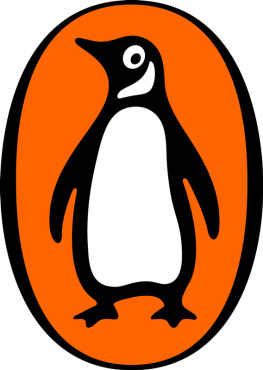
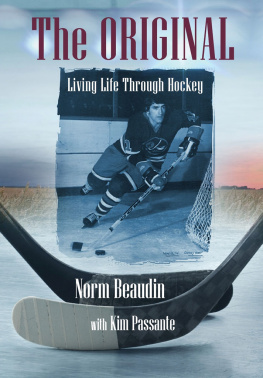
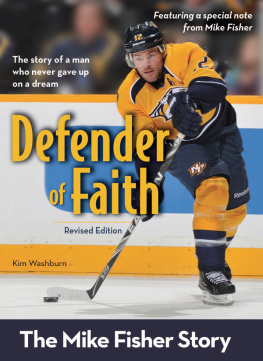

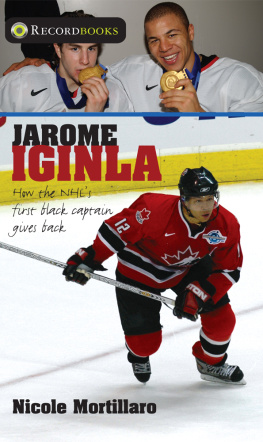
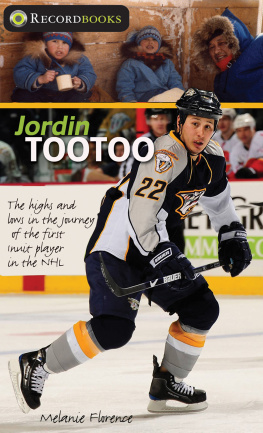
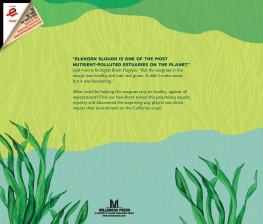
![Whitaker Nathan - The mentor leader: [secrets to building people and teams that win consistently]](/uploads/posts/book/228009/thumbs/whitaker-nathan-the-mentor-leader-secrets-to.jpg)
